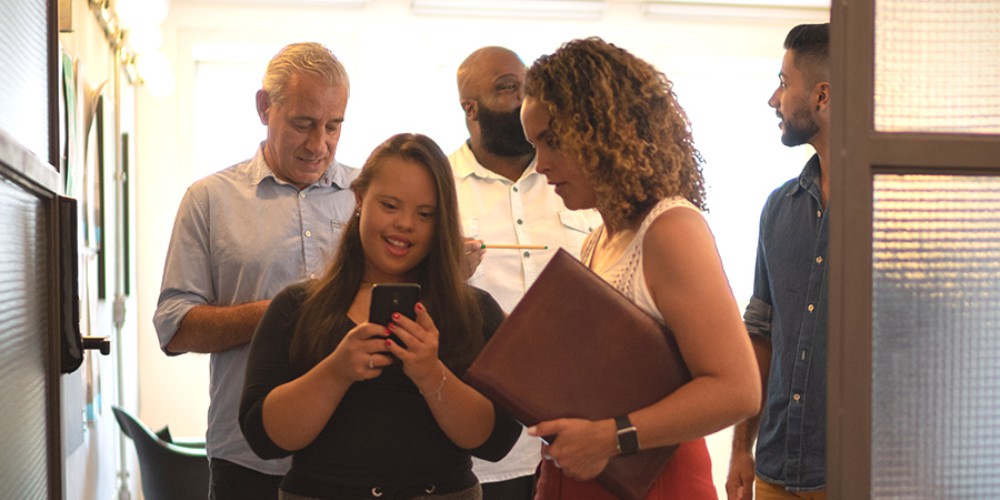“Reasonable adjustments” – i.e. the provision of adaptations to a hiring process, working environment or ways of working that makes a role accessible for an individual with disabilities - is a term employers and employees alike are becoming increasingly familiar with as accessibility in the workplace continues to rise up to become front and centre in many companies’ DEI agendas. However, in many ways reasonable adjustments remains a somewhat mystical and abstract concept for many. Indeed, speaking from my own experience as an Autistic person at the start of my career, I found myself both relishing the opportunity to explore how my early career could be adapted to my access needs and yet also not quite sure what there was to ask for.
In my head, I thought reasonable adjustments were more tangible things one might typically associate with the term, like making buildings wheelchair accessible or having accessible toilet facilities in your premises, but I never really thought about how as an Autistic person, there are things my employer can do for me as well to set me up for success in my job. Many other neurodivergent people at the start of their careers who I’ve spoken to have experienced this same struggle where they’re eager to implement reasonable adjustments but can’t visualise the full breadth of what there is to potentially ask for. Often, reasonable adjustments are very simple tweaks to a working setup – so simple, in fact, that neither the employee nor their manager might have even considered it to be, in fact, a reasonable adjustment.
If, like me, you’re at the start of your career (or you are managing a neurodivergent person at the start of your career) and don’t quite know what adjustments might be worth you trying out, below is a useful guide to breaking reasonable adjustments down according to the areas in which a neurodivergent person might wish for extra support:

Environmental adjustments are often a helpful way of making an office or onsite working environment more accessible to an individual’s sensory needs. For example, consider where a desk is placed in the office relative to sensory triggers such as fluorescent lights, noise from printers, kitchenettes, etc, especially if it’s an open plan office floor.
This also applies to the environment in which meetings are held – consider if your meeting rooms have any potential sensory triggers such as a fan oscillating, or if the meeting is happening in a more casual environment such as a café or hotel lobby, if there are any noises that might prove disturbing or distracting, e.g. the screech of a coffee machine, the hustle and bustle of people talking and walking around you.
Sometimes, wearing earphones or ear defenders can be considered rude by colleagues, as if you are attempting to shut them out. However, if you explain why you might need to wear these for noise exclusion and concentration purposes, this is an excellent example of a reasonable adjustment that can make a big difference to someone with auditory sensory differences.
Communication is often the most subtle area in which reasonable adjustments can be implemented. Consider your preferred way of receiving instructions – I, for example, always prefer to have my tasks for the week in writing so there’s no opportunity for misinterpretation as I struggle with auditory processing when instructions are imparted verbally.
Assistive technology is a must for many neurodivergent people, especially our non-speaking community and dyslexic people who may benefit from text-to-speech and spellcheck software.
Something as simple as turning on closed captions, using the hands up function on Zoom or Teams or using the chat function can open up ways for neurodivergent people to follow and contribute to meeting discussions, especially if, like me, they struggle to find the subtle pauses in the conversation in which they can say their piece and often find the topic has moved on before they get the chance to speak.
Finally, simple adaptations can be made to what someone’s working day looks like. Allowing for frequent movement breaks, even if this is just 5-10 minutes in which someone can get up and stretch before returning to their desk, is a very simple but effective way of helping some neurodivergent people, especially people with ADHD, stay stimulated and focused throughout the day.
Blocking off some time between meetings to decompress and process the information just thrown at you can be a very valuable adaptation if, like me, you find that back-to-back meetings makes it difficult for you to process and tease out so much information on distinct topics in such quick succession.
Finally, establishing clear deadlines and timelines for tasks allows for a structure that Autistic people in particular often find extremely useful when planning their day.
In short, it’s okay if you don’t know what reasonable adjustments won’t work for you just yet: most of us will learn what works for us with experience, and going on this journey of exploration and trial and error with your manager means you can learn and adapt together as you go along.
Best of luck and don’t forget to sign up with us at
www.sourceabled.co.uk if you’d like to find accessible roles with our partner employers, where we will help you secure all the reasonable adjustments you need to thrive in your role!

